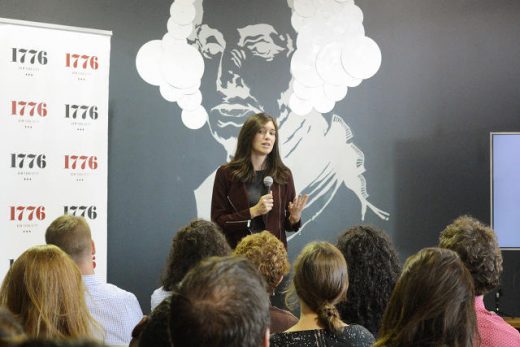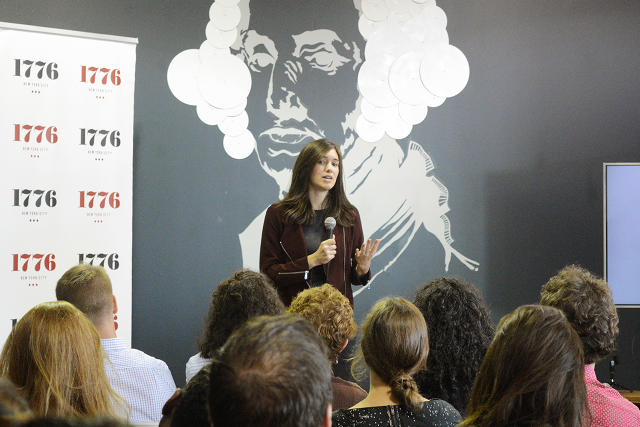How Global Incubator 1776 Plans To Diversify NYC’s Tech Sector
Rachel Haot, managing director of global incubator and seed fund 1776, believes that health care is just one example of an industry in which innovation is slow-moving in New York City.
Although it’s home to some of the best hospitals in the country—New York City lags far behind San Francisco when it comes to funding digital health startups and, when compared against another tech hub like Boston, has seen far fewer IPOs in the health care sector since 2012. This despite a survey of thousands of early-stage startups by investment research firm CB Insights that found entrepreneurial interest in apps, social, and email is waning in favor of startups working on virtual reality, artificial intelligence, and health care.
“A lot of the growth we’ve seen in the tech sector has been in areas that might be described as lower hanging fruit with lower barriers to entry: tech, fashion, e-commerce, media,” Haot tells Fast Company. “Obviously everything is regulated to some extent by the government,” she points out, “but it’s not prohibitive in the way that it is in the industries that we focus on.”
Haot says that while there’s been enormous growth in fashion, e-commerce, and the like, heavily regulated sectors from education and energy, food and financial services have been slower to expand. “That’s surprising,” she says, “because in addition to being a leader in tech, New York City is a leader in many of these legacy industries.”
That’s where 1776—which put down roots in N.Y.C. this summer—comes in. Founded in 2013, 1776 is a public benefit corporation that seeks to boost innovation in sectors like education, energy, food, fintech, and smart cities. Through its $12.5 million fund, 1776 has made 27 seed stage investments to date.
Haot, who is best known for her role as N.Y.C.’s first chief digital officer—and later the chief digital officer for New York state—has been tasked with shepherding 1776’s expansion into the city, which includes a sprawling 30,000-square-foot campus being built in the Brooklyn Navy Yard. (1776 already has campuses in San Francisco, Dubai, and Washington, D.C.)
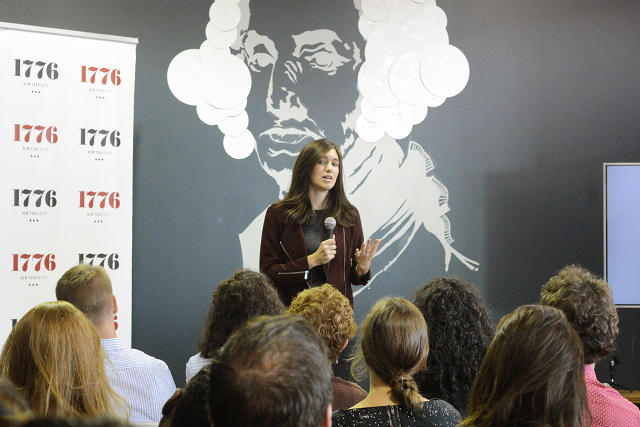
A cornerstone of 1776’s operating philosophy is to open up channels of communication between entrepreneurs and regulators, policy makers, and investors. By forging partnerships with the likes of Microsoft, Comcast Business, and MedStar Health, 1776 hopes to broker the sharing of ideas between early-stage startups and corporations.
“What we see often is that when it comes to the mix of entrepreneurs, legacy business, and government officials, it can sometimes feel like everyone’s speaking a different language and that they are not at the table together,” Haot says. “So what we do, is we create this neutral forum where everyone is aligned in their interests of supporting innovation and job growth, and building products and services that change the world.”
A key part of that, she says, is to match corporations with interested entrepreneurs and then facilitate communication. “It goes both ways because a startup may not be aware of the regulations that they’re going to be facing,” she notes, “or they may not be aware of the actual market conditions that they’re entering.”
Also, if a company is successful, Haot observes, it’s going to have to interact with government in a significant way. “We want to make sure that at a minimum, whatever strategy or tactics they employ as they grow, that companies are aware of the regulations that surround their industries and what barriers they face,” says Haot. “We want to help to really cultivate sophisticated entrepreneurs,” she continues, “who are aware of the regulatory challenges they are up against.”

All this meant building not only physical campuses, but also a digital network for everyone who interacts through 1776.
“The entire 1776 world is knit together digitally by a platform that we call Union,” Haot says. “so Union is really like an operating system for entrepreneurs.”
Through Union, entrepreneurs are granted access to mentors, curriculum, and events from across 1776. Union brings those outside the 1776 network into the fold as well. In fact, the organization works closely with other incubators and accelerators, and many of the events 1776 holds on its campuses are streamed or posted to Union.
You could say the work being done by 1776 and the work Haot did as chief digital officer are two sides of the same coin. The end goal is to bridge the gap between government and the tech sector, and to innovate by tackling the issues that most impact the residents of N.Y.C. On a more granular level, Haot says both jobs involved similar approaches. As CDO, her first assignment was to create the city’s first digital roadmap, which would set the tone for what came next: introducing public Wi-Fi, followed by digital literacy programs and the open data portal.
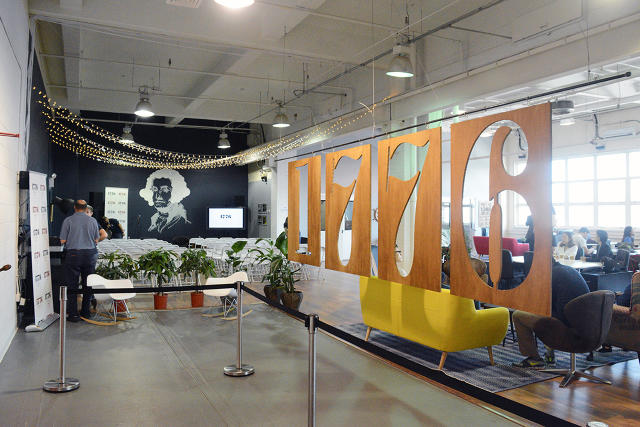
“What was interesting was that as we were planning out the campus for 1776, a similar framework emerged for how we’re going to support entrepreneurs,” Haot explains. “It basically translates to a hierarchy of needs for the entrepreneur.” Providing the infrastructure of public Wi-Fi, she says, was comparable to creating a space for entrepreneurs to work (which, of course, has to include fast internet access). After that is education, so as with the digital literacy programs, 1776 provided “classes, curriculum, everything an entrepreneur needs to succeed.” The next step was to make data available and engage the community, which Haot likens to 1776’s Union platform.
Another thing Haot continues to tackle at 1776 is corporations and organizations that, while not immovable, are slow or resistant to change. But it’s not just government or legacy businesses that shy away from taking risks. Investors can be wary of backing startups that take on highly regulated industries.
“In the past, investors have been a little nervous about it,” Haot says. “They’ve been apprehensive about having to wait 10 years for an exit, or being in a scenario where an unknown piece of legislation could make or break a company and not having control over that,” she adds. “We see a huge opportunity where others may not want to get involved.”
1776’s temporary beta campus in the Brooklyn Navy Yard.
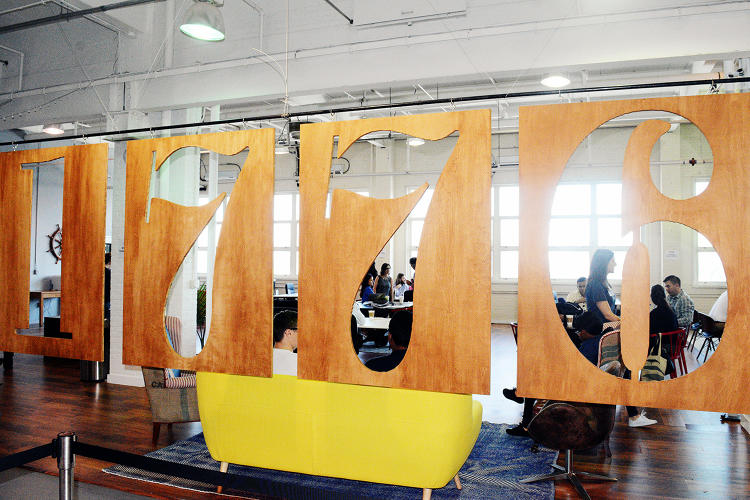
Renderings of 1776’s 30,000-square-foot campus in the Brooklyn Navy Yard, set to open in 2017.

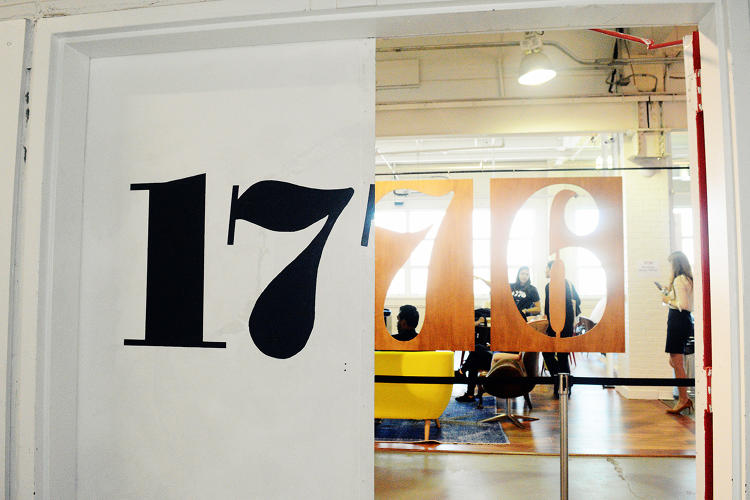
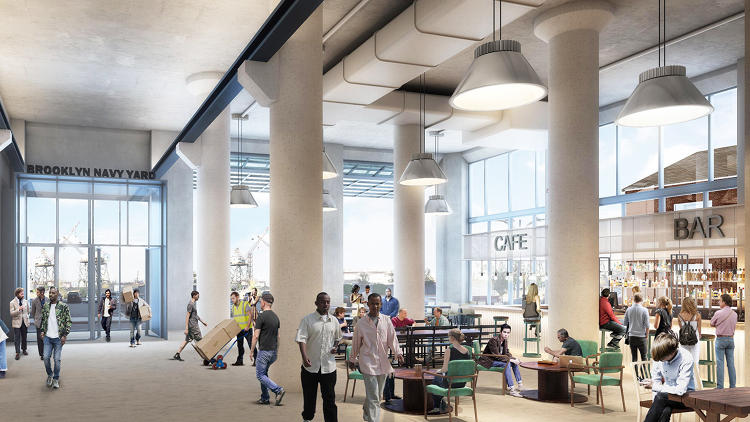
New York City chief digital officer Sree Sreenivasan at 1776’s recent open house, held last week at its beta campus.
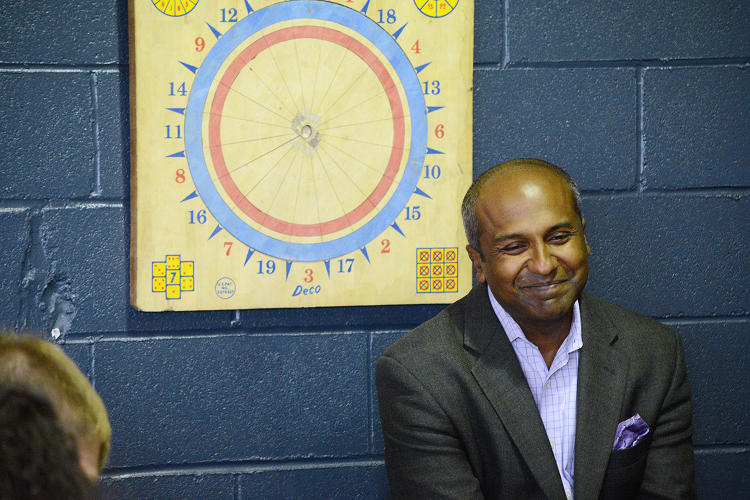
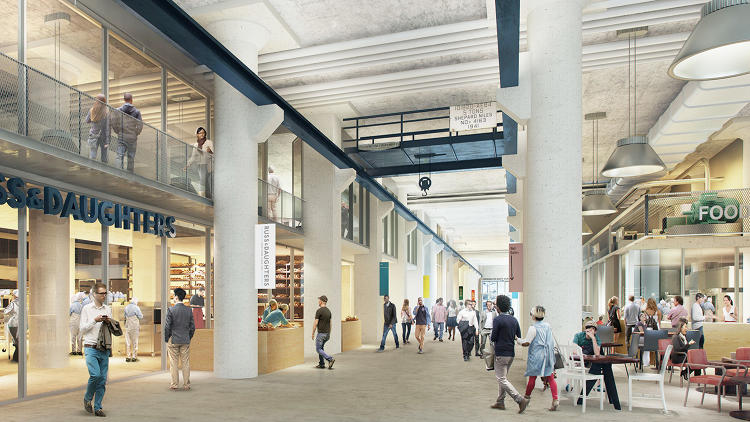
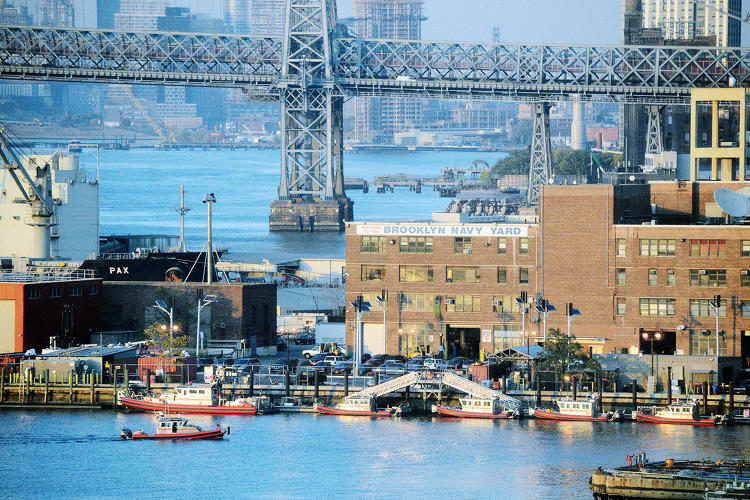

1776 managing director Rachel Haot at the open house.
0
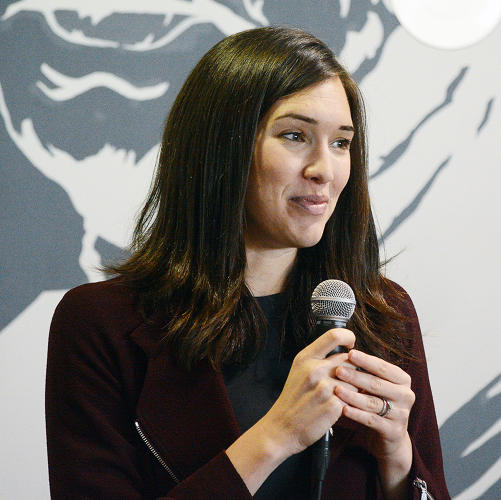
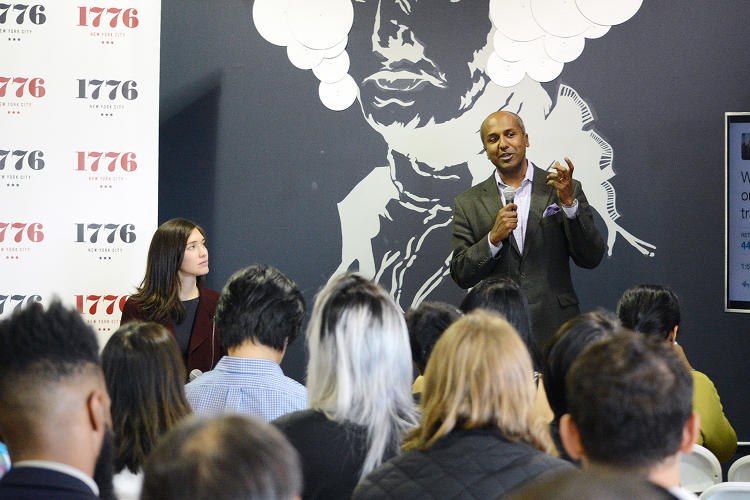
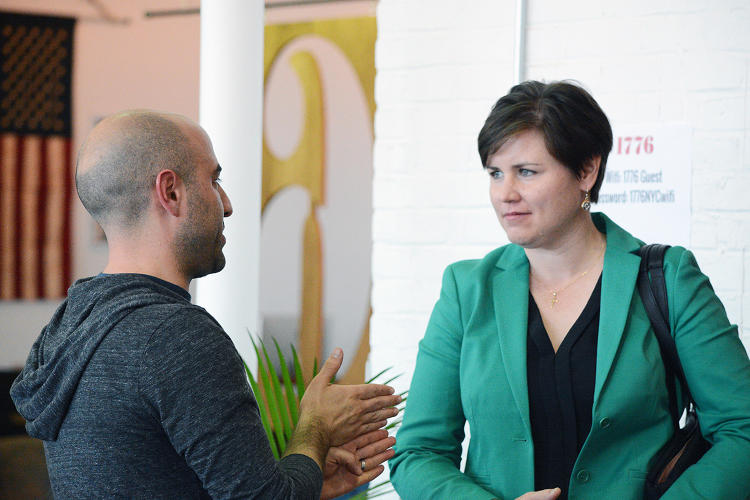
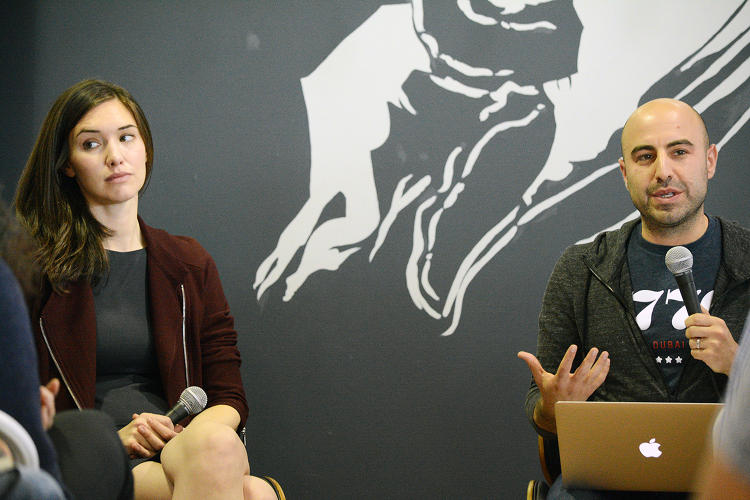
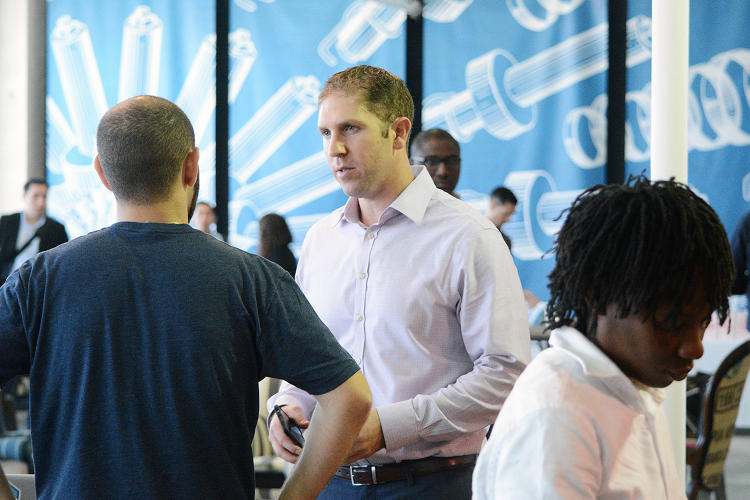
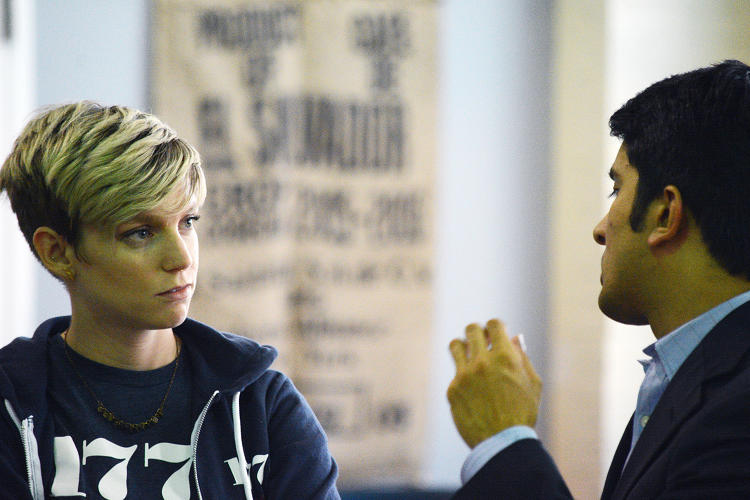
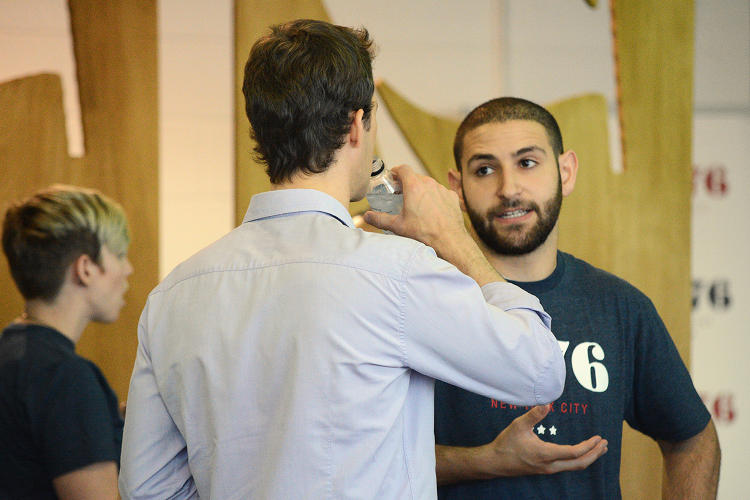
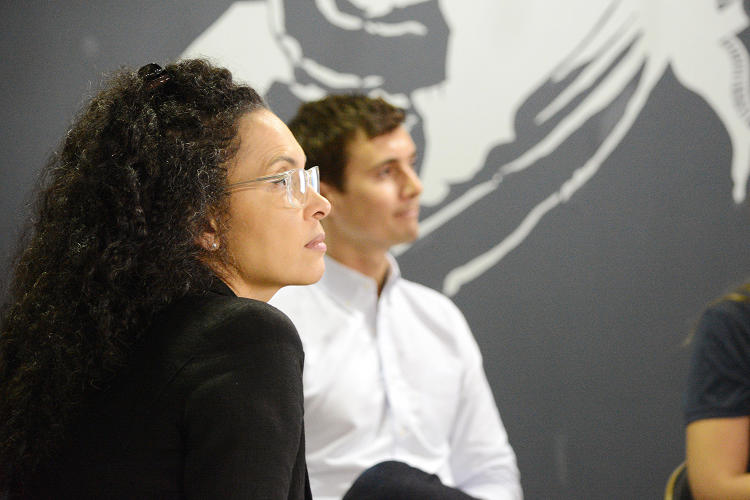
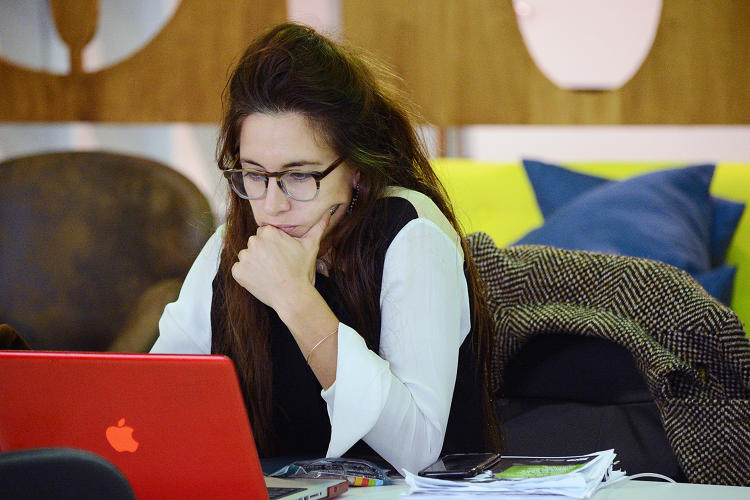
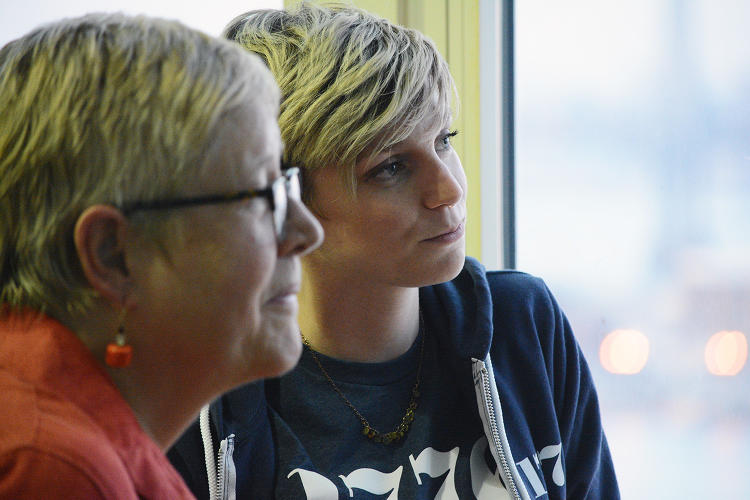
Fast Company , Read Full Story
(55)

